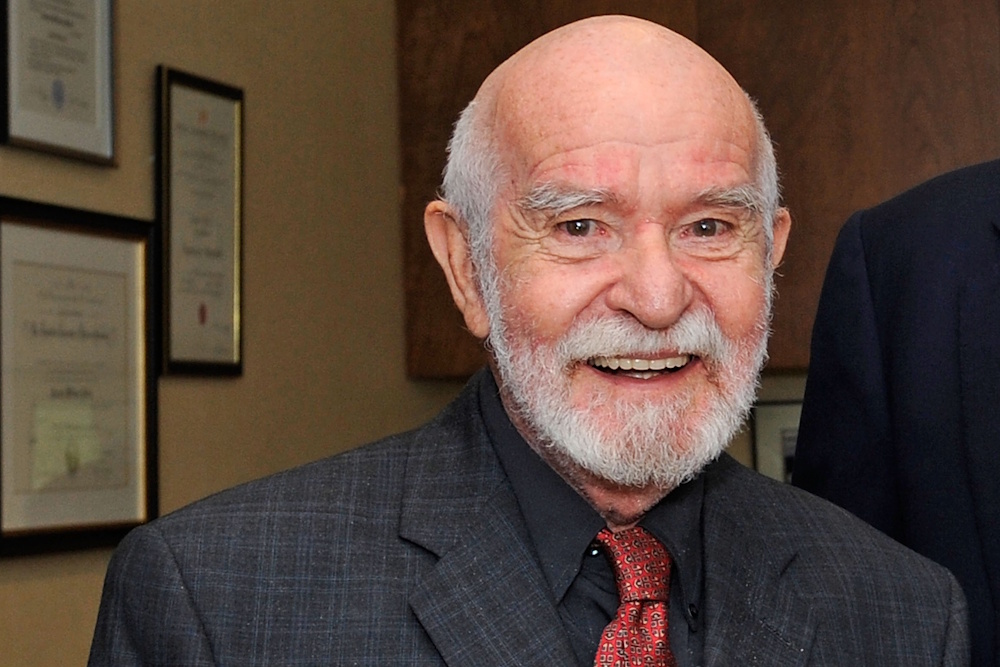
Athol Fugard (1932–2024), famed South African playwright
by
by
3 min readAthol Fugard was a famed South African playwright whose widely celebrated work probed the ugliness of apartheid and its aftermath.
- Died: March 8, 2025 (Who else died on March 8?)
- Details of death: Died in Stellenbosch, South Africa after a cardiac event at the age of 92.
- We invite you to share condolences for Athol Fugard in our Guest Book.
Table of Contents
Athol Fugard’s legacy
Fugard began making waves in South Africa long before apartheid finally collapsed in the 1990s. Growing up an Afrikaner – a child of Dutch colonizers – Fugard studied at the University of Cape Town, but he dropped out in 1953 to travel. He began writing during this time, and when he met future wife Sheila Meiring (now Sheila Fugard), an actress and writer, his interest turned towards writing for the stage.
In 1958, Fugard joined with South African actor Zakes Mokae (1934–2009) to open a multi-racial theater where plays he wrote would be performed. By 1962, he was refusing to cater to whites-only audiences and had formed the Serpent Players, a group of mostly Black actors who began to push back on the oppressive South African regime and the racist practices that drove it.
In 1967, the government came down on Fugard for his “subversive” work, revoking his passport and preventing him from traveling. He wrote on anyway. As he began to earn international attention despite being unable to leave the country, his work began being produced at the at the Yale Repertory Theatre and elsewhere, with plays like “The Blood Knot,” “’Master Harold’ ... and the Boys,” and “Sizwe Bansi is Dead” increasingly seen as important South African productions.
When apartheid was finally dismantled in the early 1990s, Fugard’s work began to explore the still lingering effects of the policy in works like “Valley Song” and “Coming Home.” He often did not address apartheid directly, instead simply presenting the reality these characters existed in and letting the audience see how that reality impacted the characters’ lives.
Over the years, Fugard’s work has earned a wide array of awards, including an Obie Award in 1971 for Best Foreign Play (“Boesman and Lena”); Tony Award nominations for “Sizwe Banzi Is Dead” and “The Island,” which was written with John Kani and Winston Ntshona (1941–2018); and a Drama Desk Award in 1982 for “’Master Harold’ ... and the Boys.” He was awarded six honorary degrees, among other honors. He wrote dozens of critically acclaimed plays, and his work has been adapted for film several times, including the 2005 Academy Award winner for Best Foreign Language Film, “Tsotsi.”
Notable quote
“I was trying to examine a guilt more profound than racial guilt — the existential guilt that I feel when another person suffers, is victimized, and I can do nothing about it. South Africa afforded me the most perfect device for examining this guilt without going into the area of the absurd as Ionesco did by giving a man a rhinoceros’s horn.” — interview with The Paris Review, 1989
Tributes to Athol Fugard
Full obituary: The New York Times
TAGS




